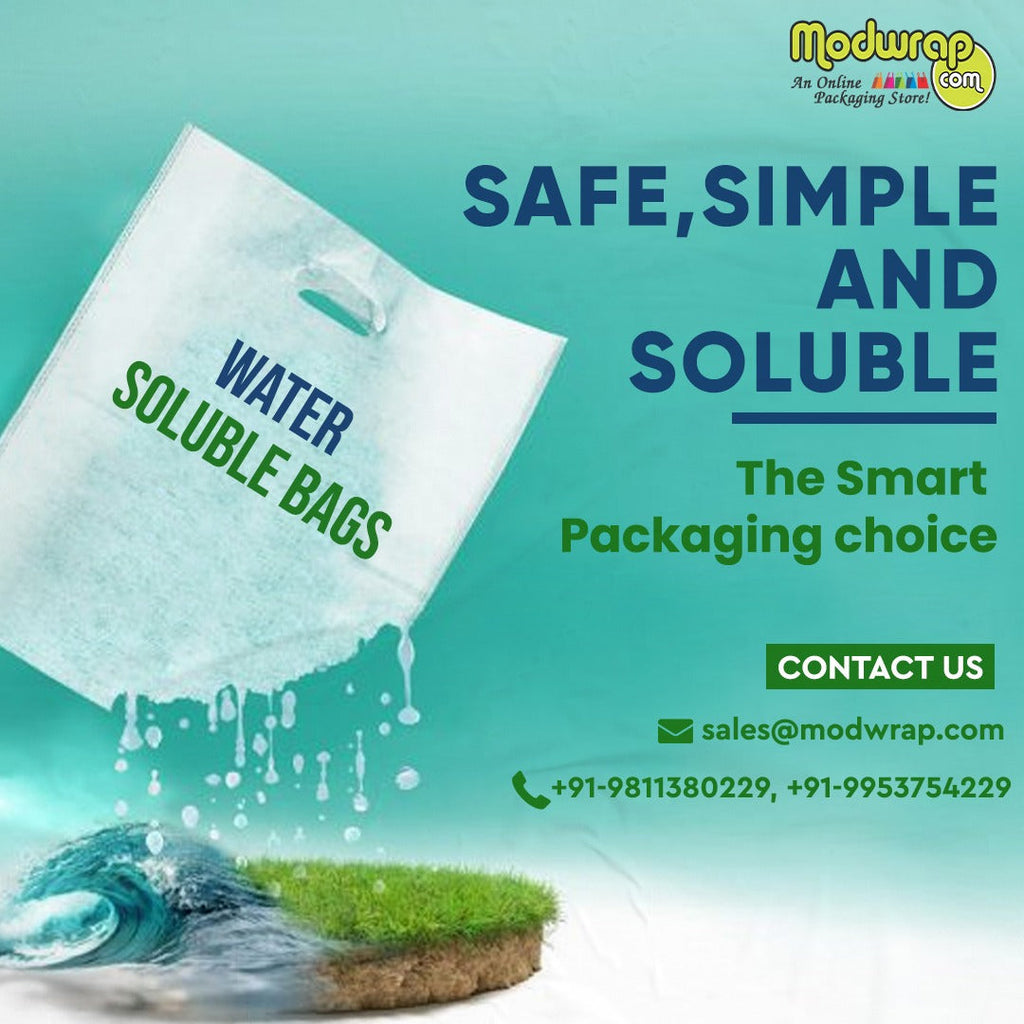Water-Soluble Bags: A Sustainable Solution to Reduce Plastic Waste

Water-soluble bags are a relatively new type of packaging material that has gained popularity in recent years. These bags are made from materials that can dissolve in water, which makes them biodegradable and eco-friendly. They are commonly used in various industries such as household cleaning products, healthcare, and agriculture.
What are Water-Soluble Bags?
Water-soluble bags are a type of packaging material that can dissolve in water. These bags are made from materials such as PVA, PLA, or starch-based materials that are biodegradable and can easily break down in the water.
Advantages of Water-Soluble Bags
One of the most significant advantages of water-soluble bags is that they reduce plastic waste. Traditional plastic bags take hundreds of years to decompose and can cause harm to the environment. On the other hand, water-soluble bags dissolve quickly and leave no harmful residues. This makes them an excellent alternative for those who are looking for more sustainable packaging options.
In addition to being eco-friendly, water-soluble bags also have several practical applications in various industries. They can be used in the healthcare industry to package medical supplies and biohazardous waste. This helps to reduce the risk of contamination and exposure to hazardous materials for both patients and healthcare workers. These bags are also ideal for the packaging of hospital linens as they can be easily dissolved in water, reducing the need for laundry services and potentially saving costs.
Water-soluble bags are also commonly used in the agricultural industry. Farmers use these bags to package fertilizers, pesticides, and other chemicals. This reduces the amount of plastic waste generated by traditional packaging materials and helps to protect the environment.
Customization Options for Water-Soluble Bags
Another advantage of water-soluble bags is that they are versatile and can be customized to suit specific needs. These bags come in different sizes, shapes, and thicknesses, making them suitable for various applications. They can be manufactured using different materials depending on the intended use.
Limitations of Water-Soluble Bags
While water-soluble bags have many advantages, there are also some limitations to their use. For instance, they may not be suitable for long-term storage, as they can dissolve if exposed to moisture for an extended period. Additionally, the bags may not be suitable for all applications, and the cost of production may be higher than that of traditional plastic bags.
Conclusion:
The Role of Water-Soluble Bags in Reducing Plastic Waste.
In conclusion, water-soluble bags are an excellent alternative to traditional plastic bags. They are environmentally friendly, reduce the risk of contamination, and can be customized to suit specific needs. While there are some limitations to their use, the benefits they offer make them an attractive option for various industries. As we continue to explore more sustainable packaging options, water-soluble bags are likely to play an increasingly important role in reducing plastic waste and protecting the environment.


